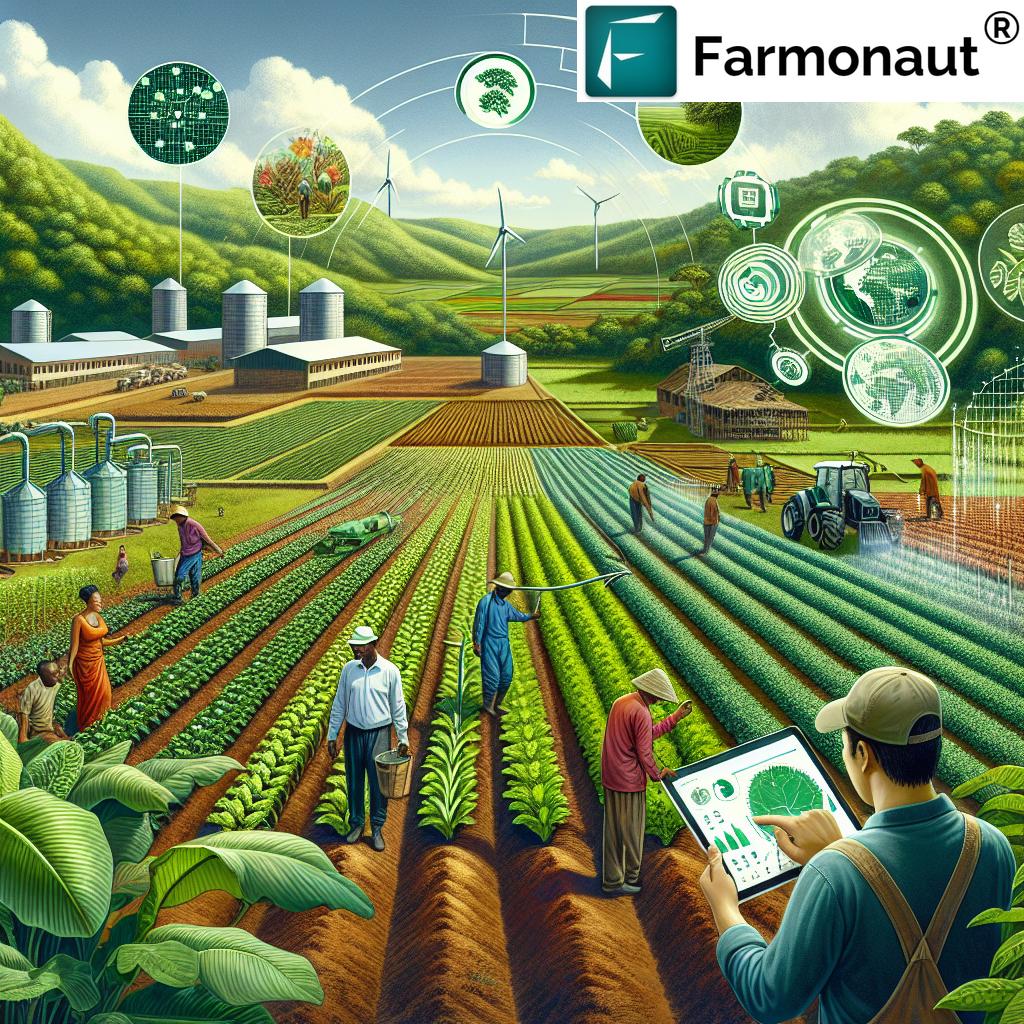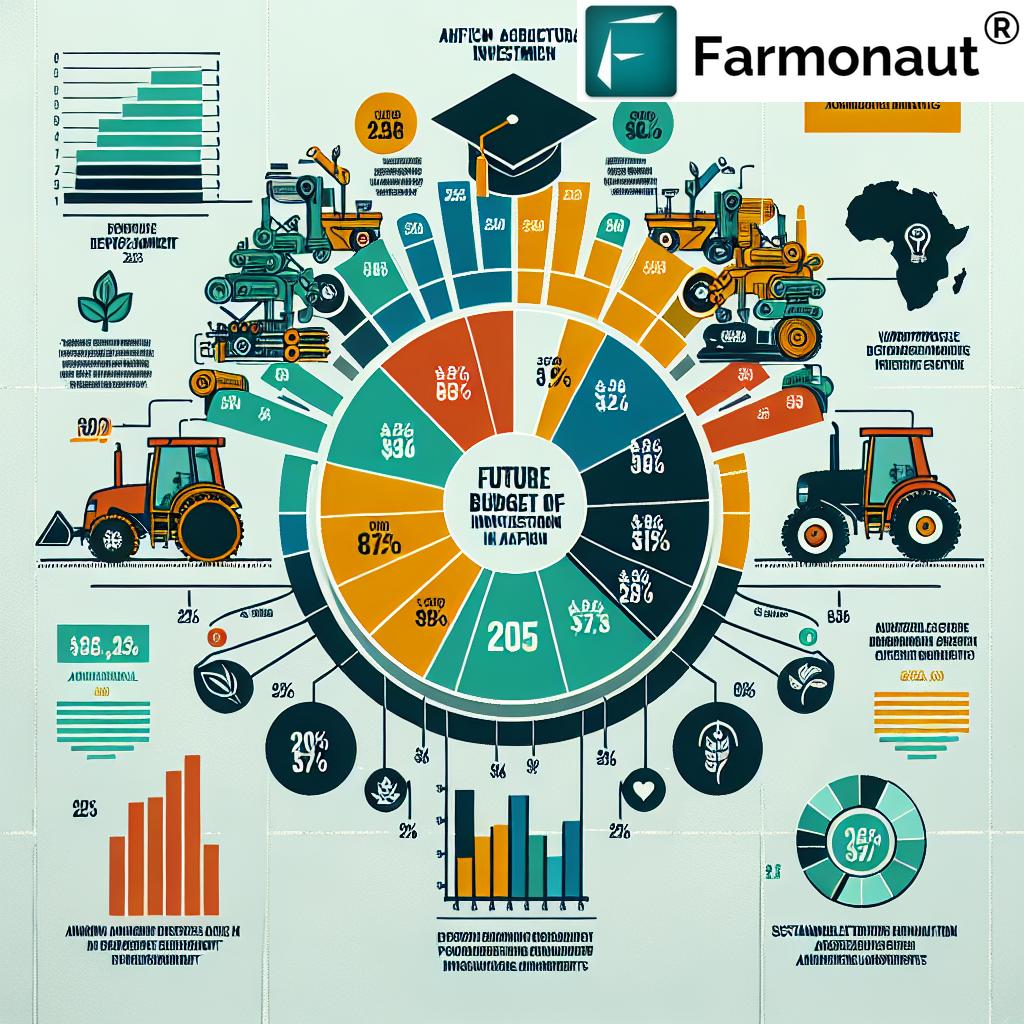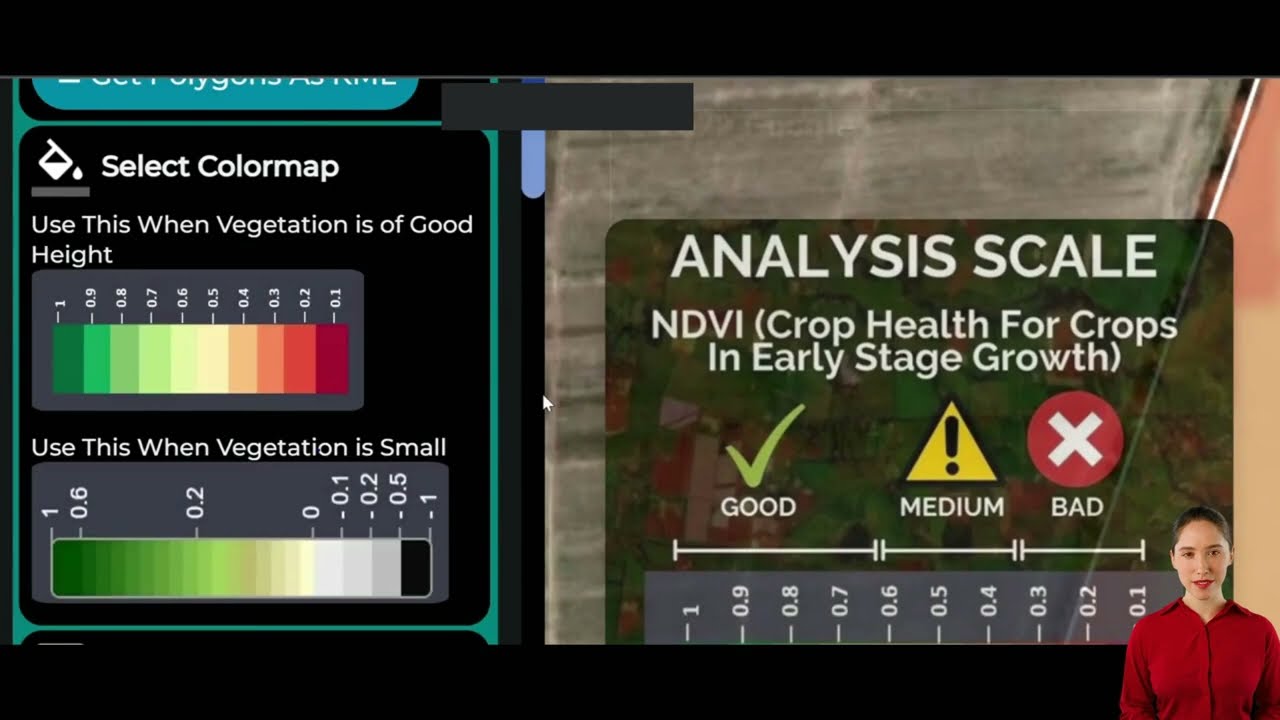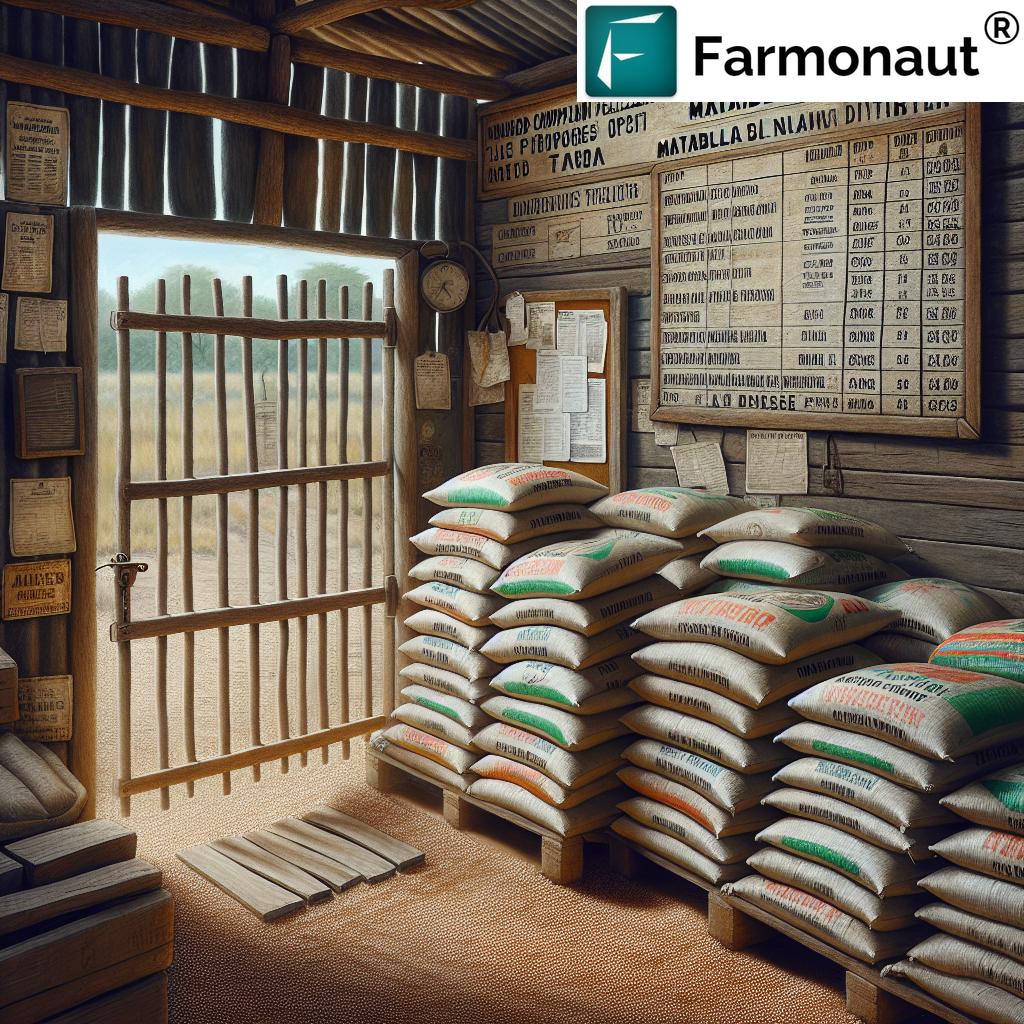Liberia’s Agricultural Sector Revolution: 2025 Budget Boosts Salaries and Sustainable Policies
“Liberia’s 2025 budget projects $851.8 million in revenue, with a focus on sustainable agriculture and rural development.”
As we delve into Liberia’s fiscal year 2025 draft national budget, we’re witnessing a transformative moment for the country’s agricultural sector. This comprehensive plan not only addresses longstanding wage disparities but also lays the groundwork for sustainable agriculture policies and rural development initiatives. In this blog post, we’ll explore how these reforms are set to revolutionize Liberia’s agricultural landscape and potentially boost agriculture revenue growth.
The Budget Overview: A New Era for Liberian Agriculture
The 2025 fiscal year budget for Liberia marks a significant milestone in the country’s economic trajectory. With a projected revenue of $851.8 million, the government has made it clear that sustainable agriculture and rural development are at the forefront of their agenda. This focus aligns perfectly with the global trend towards more sustainable and technologically advanced agricultural practices.
At Farmonaut, we understand the importance of integrating innovative technology into traditional farming practices. Our satellite-based farm management solutions, accessible via our web app, Android app, and iOS app, are designed to support precisely the kind of agricultural revolution that Liberia is aiming for.

Public Sector Wage Reforms: Boosting Agricultural Workforce
One of the most significant aspects of the 2025 budget is the public sector wage reform. The government has committed to ensuring that no public employee earns below $150 monthly, addressing longstanding remuneration disparities. This move is particularly impactful for the agricultural sector, where many workers have traditionally been underpaid.
- Approximately 28,200 government employees (45% of the workforce) will receive salary increases
- Agricultural extension workers will see monthly raises of $30 to $40
- A dedicated fund of $2.6 million is earmarked to integrate volunteer workers into the government payroll
These wage reforms are expected to have a ripple effect on agricultural workforce development. By providing more competitive salaries, the sector is likely to attract and retain skilled professionals, ultimately leading to improved agricultural practices and increased productivity.
Sustainable Agriculture Policies: A Path to Growth
The 2025 budget’s focus on sustainable agriculture policies is a game-changer for Liberia’s agricultural sector. These policies aim to promote environmentally friendly farming practices while boosting productivity and resilience. Some key initiatives include:
- Increased funding for agricultural research and development
- Support for organic farming practices
- Investment in water management and irrigation systems
- Promotion of crop diversification to enhance food security
At Farmonaut, we’re excited to see this emphasis on sustainability. Our satellite-based crop health monitoring system can play a crucial role in supporting these initiatives by providing real-time data on vegetation health, soil moisture levels, and other critical metrics. This information can help farmers make informed decisions about resource management, aligning perfectly with Liberia’s sustainability goals.
Rural Development Initiatives: Bridging the Urban-Rural Divide
The 2025 budget allocates significant resources to rural development initiatives, recognizing the critical role of rural areas in Liberia’s agricultural economy. These initiatives aim to:
- Improve rural infrastructure, including roads and storage facilities
- Enhance access to markets for rural farmers
- Provide better healthcare and education services in rural areas
- Promote agribusiness opportunities in rural communities
These rural development initiatives are crucial for creating a more balanced and inclusive agricultural sector. By improving the quality of life and economic opportunities in rural areas, Liberia can stem rural-urban migration and create a more robust agricultural base.
“The Liberian government aims to ensure no public employee earns below $150 monthly, addressing longstanding remuneration disparities.”
Agricultural Extension Services: Empowering Farmers with Knowledge
A significant portion of the budget is allocated to strengthening agricultural extension services. This investment is crucial for disseminating knowledge and best practices to farmers across the country. Key aspects include:
- Training programs for extension workers to update their skills
- Increased frequency of farm visits and farmer training sessions
- Integration of digital technologies in extension services
- Collaboration with research institutions to bring the latest agricultural innovations to farmers
At Farmonaut, we recognize the importance of empowering farmers with knowledge. Our Jeevn AI Advisory System complements these efforts by providing personalized farm advisory services based on satellite data and AI analysis. This technology can significantly enhance the effectiveness of Liberia’s agricultural extension services.

Agricultural Technology Innovation: Driving Productivity
The 2025 budget recognizes the transformative power of technology in agriculture. Investments in agricultural technology innovation are expected to drive productivity and efficiency across the sector. Key focus areas include:
- Adoption of precision agriculture techniques
- Implementation of smart irrigation systems
- Use of drones for crop monitoring and pest control
- Integration of blockchain technology for supply chain transparency
These technological advancements align closely with Farmonaut’s mission to make precision agriculture affordable and accessible. Our satellite-based solutions and blockchain-based traceability systems can contribute significantly to Liberia’s agricultural technology innovation efforts.
Impact on Agriculture Revenue Growth
The comprehensive reforms outlined in the 2025 budget are expected to have a substantial positive impact on agriculture revenue growth. By addressing key challenges and investing in critical areas, Liberia is positioning its agricultural sector for significant expansion. Factors contributing to this growth include:
- Increased productivity due to better farming practices and technology adoption
- Improved market access through rural development initiatives
- Enhanced crop quality and yield through sustainable agriculture policies
- Greater investment in the sector due to improved working conditions and wages
While specific projections are not available, the Minister of Finance and Development Planning, Augustine Kpehe Ngafuan, forecasts overall economic growth of 5.8% in 2025, with agriculture playing a significant role in this expansion.
Comparative Analysis: Liberia’s 2025 Budget Impact on Agricultural Sector
| Indicator | Pre-2025 Budget (Estimated) | Post-2025 Budget (Projected) |
|---|---|---|
| Minimum Monthly Salary for Agricultural Workers | $100 | $150 |
| Agricultural Extension Services Budget | $5 million | $8 million |
| Rural Development Initiative Funding | $10 million | $15 million |
| Agricultural Sector Revenue | $200 million | $250 million |
| Number of Integrated Volunteer Workers | 500 | 2,000 |
| Technology Innovation Investment in Agriculture | $2 million | $5 million |
| Overall Agricultural Sector Budget Allocation | $50 million | $75 million |
This comparative analysis clearly illustrates the significant improvements projected across various agricultural indicators following the implementation of the 2025 budget. The substantial increases in funding, salaries, and technological investment underscore the government’s commitment to revolutionizing Liberia’s agricultural sector.
Challenges and Considerations
While the 2025 budget presents a promising outlook for Liberia’s agricultural sector, it’s important to acknowledge potential challenges:
- Implementation hurdles: Ensuring effective execution of the proposed reforms
- Capacity building: Training personnel to adapt to new technologies and practices
- Environmental concerns: Balancing increased productivity with sustainability
- Market fluctuations: Preparing for potential changes in global agricultural markets
Addressing these challenges will be crucial for the success of Liberia’s agricultural revolution. At Farmonaut, we believe that our technologies, such as our satellite and weather data API, can help mitigate some of these challenges by providing real-time data and insights to support decision-making at all levels.
The Role of Technology in Liberia’s Agricultural Revolution
As Liberia embarks on this ambitious journey to transform its agricultural sector, the role of technology cannot be overstated. Advanced agricultural technologies have the potential to accelerate growth, improve efficiency, and ensure sustainability. Some key technological interventions that could play a crucial role include:
- Satellite-based crop monitoring systems
- AI-powered farm management tools
- IoT devices for precise resource management
- Blockchain solutions for supply chain transparency
At Farmonaut, we’re committed to supporting Liberia’s agricultural revolution through our cutting-edge technologies. Our solutions, which include satellite-based crop health monitoring, AI advisory systems, and blockchain-based traceability, are perfectly aligned with Liberia’s goals for agricultural modernization.
Conclusion: A Bright Future for Liberian Agriculture
Liberia’s 2025 budget represents a significant step towards revolutionizing the country’s agricultural sector. By addressing wage disparities, investing in sustainable practices, and embracing technological innovation, Liberia is positioning itself for substantial agricultural growth and development.
As we look to the future, it’s clear that the success of these reforms will depend on effective implementation, continued investment, and the adoption of advanced agricultural technologies. At Farmonaut, we’re excited about the potential of these changes and stand ready to support Liberia’s agricultural revolution with our innovative solutions.
The journey ahead is challenging but filled with promise. With the right strategies, technologies, and commitment, Liberia’s agricultural sector is poised for a transformative leap forward, benefiting farmers, consumers, and the entire nation.
FAQ Section
Q1: What are the main objectives of Liberia’s 2025 budget for the agricultural sector?
A1: The main objectives include addressing wage disparities, implementing sustainable agriculture policies, boosting rural development, strengthening agricultural extension services, and promoting agricultural technology innovation.
Q2: How will the wage reforms impact agricultural workers?
A2: The reforms ensure a minimum monthly salary of $150 for public sector employees, including those in agriculture. This is expected to improve living standards and attract more skilled workers to the sector.
Q3: What role does technology play in Liberia’s agricultural revolution?
A3: Technology is crucial for improving productivity and sustainability. The budget includes investments in precision agriculture, smart irrigation, drone technology, and blockchain for supply chain transparency.
Q4: How will rural development initiatives benefit farmers?
A4: These initiatives aim to improve rural infrastructure, enhance market access, provide better healthcare and education, and promote agribusiness opportunities, all of which will support farmers and rural communities.
Q5: What are the projected economic impacts of these agricultural reforms?
A5: While specific projections for the agricultural sector are not available, the overall economy is forecast to grow by 5.8% in 2025, with agriculture playing a significant role in this expansion.
For more information on how Farmonaut’s advanced agricultural solutions can support your farming operations, please visit our API Developer Docs or contact our team directly.



















